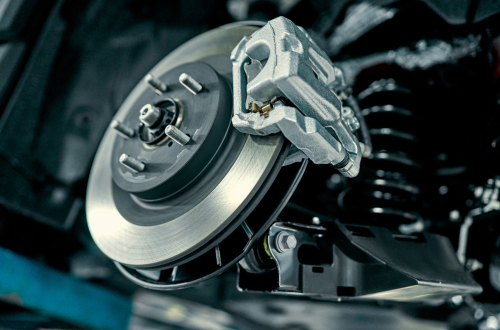Emergency Brake Repair: What to Do When Your Brakes Fail on the Road

Having your brakes fail while you are driving can be a terrifying experience. It is essential to know what to do in this situation to ensure your safety and the safety of others on the road. In this blog, we will discuss what to do when your brakes fail while driving and how to safely bring your vehicle to a stop.
Signs of Brake Failure
Before your brakes completely fail, there are often warning signs that indicate a problem. If you notice any of the following signs, you should get your brakes checked as soon as possible:
– Squeaking or grinding noises when you apply the brakes
– Vibrations or pulsations in the brake pedal
– Soft or spongy brake pedal
– Pulling to one side when braking
– Dashboard warning lights for the brake system
If you experience any of these symptoms, it is important to have your brakes inspected by a qualified mechanic to prevent a potentially dangerous situation on the road.
What to Do When Your Brakes Fail
If you find yourself in a situation where your brakes fail while driving, it is crucial to remain calm and follow these steps to bring your vehicle to a safe stop:
1. Stay Calm and Stay Focused
The most important thing to remember in this situation is to stay calm and focused. Panicking will only make the situation worse and can lead to poor decision-making. Take a deep breath, and concentrate on safely bringing your vehicle to a stop.
2. Downshift Gently
If you have a manual transmission, downshifting to a lower gear can help slow your vehicle down. Shift into a lower gear gradually and avoid sudden movements that could cause your vehicle to skid or lose control.
3. Pump the Brakes
If your brakes have failed, pumping the brake pedal rapidly can sometimes build up enough pressure to slow your vehicle down. Even if this doesn’t bring your vehicle to a complete stop, it can help reduce your speed and give you more time to take additional corrective actions.
4. Engage the Emergency Brake
If pumping the brakes does not work, the next step is to use your emergency brake. Pull the emergency brake handle slowly and steadily to avoid locking up the rear wheels. This will help slow your vehicle down and give you more control over steering.
5. Look for a Safe Place to Stop
While trying to slow your vehicle down, look for a safe place to stop, such as the side of the road or a parking lot. Avoid stopping in the middle of a busy road or intersection, as this can pose a danger to yourself and other motorists.
6. Use Roadside Assistance
If you are unable to bring your vehicle to a stop or if you feel unsafe driving, call for roadside assistance. Many roadside assistance programs offer emergency towing services to help safely transport your vehicle to a repair shop.
Preventing Brake Failure
Preventing brake failure is essential to ensuring your safety on the road. Here are some tips to help prevent brake failure:
– Regular maintenance: Have your brakes inspected regularly by a qualified mechanic and replace brake pads and rotors as recommended.
– Listen for warning signs: Pay attention to any changes in your braking system, such as strange noises or vibrations, and have them checked promptly.
– Avoid overheating: Avoid riding the brakes or driving aggressively, as this can lead to overheating and brake failure.
– Maintain proper fluid levels: Check your brake fluid regularly and top it up as needed to ensure optimal braking performance.
Summary
Experiencing brake failure while driving can be a frightening and dangerous situation. Knowing how to handle this emergency can help prevent accidents and keep you safe on the road. By remaining calm, using the emergency brake, and following the steps outlined in this blog, you can safely bring your vehicle to a stop in the event of brake failure. Remember to stay vigilant and attentive to warning signs, and have your brakes inspected regularly to prevent brake failure in the future. Your safety and the safety of others on the road depend on it.

